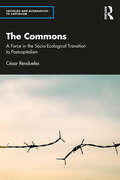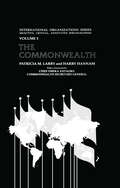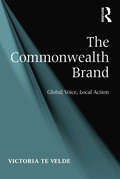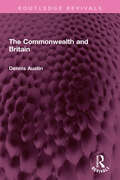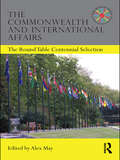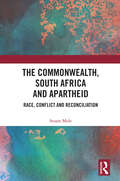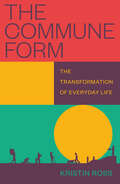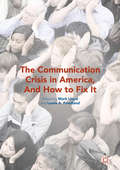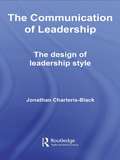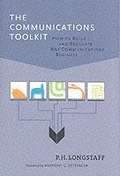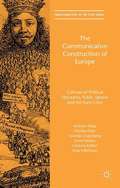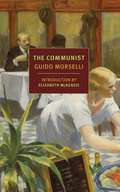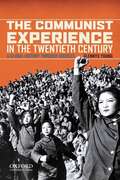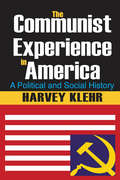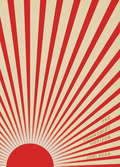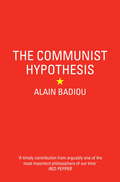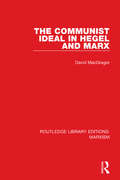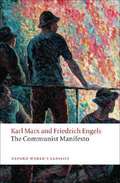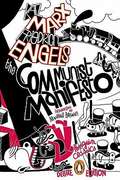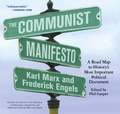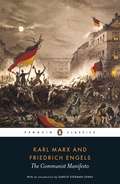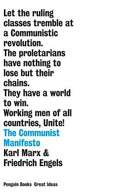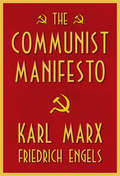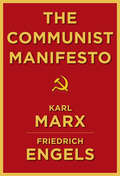- Table View
- List View
The Commons: A Force in the Socio-Ecological Transition to Postcapitalism (Critiques and Alternatives to Capitalism)
by César RenduelesThis book provides a lucid, rigorous and critical account of the commons, its history and its political potentialities as well as its limitations and ambiguities. In particular, The Commons analyses the relations of solidarity and conflict between the commons and public welfare policies, as well as the role the commons can play in the struggle against the global socioecological crisis that is threatening the very future of humanity. Over the past decade, various theories, concepts and political projects connected to the commons have become fundamentally important for social science and numerous social movements around the world. In sociology, economics, political science, history, geography, the law and anthropology, the study of the commons has inspired many important academic innovations. In parallel, community activists, labour unions, ecologists, feminists and cooperativists have discovered in the commons a powerful and thought-provoking toolkit with which to defend public services, guarantee access to cultural goods, organise reproductive and care work and more generally fight against commodification and ecological destruction. The first two chapters analyse the dual origin of the academic rediscovery of the commons. On one side, from the realm of political science and economics, the concept of the commons has been used to challenge the dominant paradigms founded on rational choice theory. On the other, from the fields of history, law and anthropology, analysis of the violent destruction of the commons has served to deepen our understanding of the coercive and antidemocratic processes that form the bedrock of capitalism and our current plight. The third and fourth chapters examine the role that the commons can play in emancipatory political projects aiming to deepen democracy in mass industrial societies. The Commons will appeal to scholars across the social sciences and academics with interests in social and political theory, the environment and sustainability, and political sociology.
The Commonwealth
by Patricia Larby Harry HannamThe modern British Commonwealth, linking fifty countries around the world in voluntary association, cooperation, and consultation, is a unique body in world history. The area of its member countries covers a third of the globe and collectively their peoples represent a quarter of the world's total population. Though essentially different from the British Empire from which it originated, the Commonwealth shares many common historical ties with Britain. Patricia M. Larby and Harry Hannam have assembled an unrivaled body of literature to illustrate the growth of the Empire into the Commonwealth.This extensive bibliography identifies, lists, and annotates the most important publications on the development and growth of the Commonwealth; its present status and functions; and its role in education, literature, sport, and the arts and sciences. It includes its historical origins: its cooperation in economics, politics, and international issues such as the environment; and its many spheres of professional activity including medicine, law, and architecture. Strong emphasis is placed on the role of the English language in the Commonwealth and as a medium for creative literature in many disparate cultures worldwide.The Commonwealth appears at a time when this unique organization is on the threshold of a new era in its history. The proposals emerging from the 1991 Commonwealth Heads of Government meeting include statements on democracy and human rights; environmental affairs; and global concerns such as international crime, drug abuse, and AIDS. No previous comprehensive bibliography of the Commonwealth exists, and this volume fills a long-standing gap in the bibliographical coverage. It will be an essential reference source for libraries and scholars involved in Commonwealth studies and will be of particular interest to historians, political scientists, economists, and educators.
The Commonwealth Brand: Global Voice, Local Action
by Victoria te Veldete Velde examines Commonwealth identity through the lens of its membership criteria, its recent enlargement and its constant reincarnation. Far from being an old relic of the past, the Commonwealth is a growing, vibrant modern international organisation and despite its traditional image, Commonwealth membership is shown to be a rather fluid concept that evolves with the times. This book identifies and discusses the different theoretical approaches to analysing the Commonwealth. In so doing it exposes various shortcomings in current thinking about international relations and the Commonwealth. Furthermore, it reveals how a number of turning points in the Commonwealth's history have shaped its membership rules and illustrates how the official Commonwealth still has the potential to expand and develop to best reflect an organisation that represents a third of the world's population. In terms of further growth of the organisation, this book examines the cases of a number of eligible states to assess their likelihood of achieving membership. It also incorporates a handful of non-eligible states that, notwithstanding the new 'rules', are still bent on joining.
The Commonwealth and Britain (Routledge Revivals)
by Dennis AustinFirst Published in 1988, The Commonwealth and Britain reexamines the Commonwealth connection from the perspective of British interests and priorities and assesses the need for changes in British policy. It raises questions like: Is the Commonwealth an asset or a liability to Britain in terms of international influence and obligations? Has the South African issue now become the central focus for Commonwealth consultation and conflict, or are there broader, long-term issues for which the Commonwealth remains an appropriate forum? And how useful and important for Britain are the social, cultural, and economic links which the Commonwealth fosters? This book is a must read for scholars and researchers of British politics and British history.
The Commonwealth and International Affairs: The Round Table Centennial Selection
by Alex MayThe Round Table journal (now subtitled The Commonwealth Journal of International Affairs) first appeared in 1910. The journal carried a number of articles recognised both by contemporaries and by historians as highly influential in the making of Commonwealth policy, including constitutional reform in India, the independence of southern Ireland, the League of Nations mandates system and the United Nations trusteeship system, British policy in East Asia, the building of the Anglo-American alliance, appeasement, decolonisation, and the transition to a new, multipolar Commonwealth. This book brings together excerpts from some of the key articles published over the last one hundred years and features leading figures including; Lionel Curtis and John Dove on Ireland, leading to the Anglo-Irish Treaty and the creation of the Irish Free State, T.E. Lawrence on the Middle East, a key influence on post-1919 state creation in the Arab Middle East, Philip Kerr on India, galvanizing attempts at constitutional reform in British India. This selection provides a unique commentary on imperial/Commonwealth and international affairs and makes available to a new generation of scholars and students some of the articles now acknowledged as key influences in the evolution of British and Commonwealth policies. This collection of essays is intended as a companion volume to The Contemporary Commonwealth: An assessment 1965 - 2009, edited by James Mayall, marking the centenary of The Round Table.
The Commonwealth, South Africa and Apartheid: Race, Conflict and Reconciliation
by Stuart MoleThis book explores the role of the modern Commonwealth in the international campaign against apartheid in South Africa. Spanning the period of South Africa’s apartheid state, from its foundation in 1948 until its ending in April 1994, the author demonstrates that, after the 1960 Sharpeville massacre and South Africa’s subsequent exclusion from the Commonwealth, the organisation was able to become both "pathfinder and interlocutor" on the road to South Africa’s freedom. As well as South Africa’s ejection from the Commonwealth, apartheid’s increasing isolation was sustained by the Commonwealth’s pioneering work in boycotting apartheid sport, as well as campaigning to stop arms sales. It also played an important role in internationalising economic and financial sanctions, credited by some as the final nail in apartheid’s coffin, and was able to make an important and distinctive contribution to the transition to democracy. At the same time, critical debates within the Commonwealth about racial and political equality transformed the association from a docile, post-imperial organisation, led by the UK and in its own interests, to a modern, multiracial ‘North-South’ forum for reconciling global difference and overcoming the legacies of colonialism. This comprehensive and authoritative account of the Commonwealth’s engagement with apartheid South Africa is intended for all those who study and research the modern Commonwealth, its structure and influence, and for those with a general interest in contemporary post-war history.
The Commune Form: The Transformation of Everyday Life
by Kristin RossA leading radical historian looks at the global resurgence of the commune and asks how they can become sites of liberationWhen the state recedes, the commune-form flourishes. This was as true in Paris in 1871 as it is now whenever ordinary people begin to manage their daily lives collectively.Contemporary struggles over land - from the zad at Notre-Dame-des-Landes to Cop City in Atlanta, from the pipeline battles in Canada to Soulèvements de la terre - have reinvented practices of appropriating lived space and time. This transforms dramatically our perception of the recent past.Rural struggles of the 1960s and 70s, like the "Nantes Commune," the Larzac, and Sanrizuka in Japan, appear now as the defining battles of our era. In the defense of threatened territories against all manners of privatization, hoarding, and infrastructures of disaster, new ways of producing and inhabiting are devised that side-step the state and that give rise to unprecedented kinds of solidarity built on pleasurable, fruitful collaborations.These are the crucial elements in the present-day reworking of an archaic form: the commune-form that Marx once called "the political form of social emancipation," and that Kropotkin deemed "the necessary setting for revolution and the means of bringing it about."
The Communication Crisis in America, And How to Fix It
by Mark Lloyd and Lewis A. Friedlandwith foreword by Michael X. Delli Carpini, Annenberg School for Communication, University of Pennsylvania, USAThis book critiques U.S. public policy about communication and offers guidelines to improve public safety and create strong democratic communities. The lack of effective emergency communication, basic information about health care, education, jobs and the economy, and civic life is at a crisis state, creating problems for the whole community, not just a vulnerable few. The Communications Crisis in America is not because of changing markets or new technology, it is the failure of public policy. The authors include economists, sociologists, journalists, lawyers and a diverse group of media and communication scholars, all offering an urgent call to action and difficult, but achievable steps forward.
The Communication of Leadership: The Design of Leadership Style (Routledge Studies in Linguistics)
by Jonathan Charteris-BlackWith the crisis of leadership in the western democracies, there has been a growth of interest in how leaders outside of the west emerge and consolidate their positions. This book analyses the communication strategies of six charismatic non-western leaders: Mahatma Gandhi, Nelson Mandela, Fidel Castro, Ayatollah Khomeini, Mohammed Mahathir and Lee Kuan Yew. The book addresses the following questions in order to arrive at a better understanding of communication and leadership: How do leaders communicate? Do leaders communicate more by words, or actions? Do leaders have unique communication strategies? Are leaders moral beings, or impostors? The book describes how each of these leaders designed a unique style that integrated verbal and non-verbal modes of communication. It argues that leadership style is performed through the cumulative interaction of non-verbal modes – dress, body language, physical possessions, symbols and symbolic actions – with verbal strategies for communicating visions, values and legitimacy. In order to understand how each of these leaders undertakes a dramatic ‘performance’ of leadership, Jonathan Charteris-Black uses Erving Goffman’s notion of ‘Front’. Noting the inherent similarities between the mutual dependency of actors with audiences and leaders with followers, the book suggests that leaders – like actors – use metaphors and symbols to satisfy followers’ psychological and symbolic needs and that leadership is communicated through impression management, metaphor and media choices. A fascinating and well executed study, this book will interest students and academics working on leadership, applied linguistics, communication studies and politics.
The Communications Toolkit: How to Build and Regulate Any Communications Business
by P. H. Longstaff Anthony OettingerThis book provides the tools necessary to build lasting, flexible strategies to survive and grow in these times of transition. Whether you are a business executive, lawmaker, policy analyst, industrialist, stock analyst, lawyer, or judge, these tools will help you to solve real problems right away.
The Communicative Construction of Europe: Cultures of Political Discourse, Public Sphere, and the Euro Crisis (Transformations of the State)
by Andreas Hepp Johanna Möller Monika Elsler Swantje Lingenberg Anne Mollen Anke OfferhausBased on a 12-year long project, this book demonstrates the contested character of the communicative construction of Europe. It does so by combining an investigation of journalistic practices with content analysis of print media, an examination of citizens' online interactions and audience studies with European citizens.
The Communist
by Elizabeth Mckenzie Guido Morselli Frederika RandallA unique political coming of age story, now in English for the first time.An NYRB Classics Original Walter Ferranini has been born and bred a man of the left. His father was a worker and an anarchist; Walter himself is a Communist. In the 1930s, he left Mussolini’s Italy to fight Franco in Spain. After Franco’s victory, he left Spain for exile in the United States. With the end of the war, he returned to Italy to work as a labor organizer and to build a new revolutionary order. Now, in the late 1950s, Walter is a deputy in the Italian parliament. He is not happy about it. Parliamentary proceedings are too boring for words: the Communist Party seems to be filling up with ward heelers, timeservers, and profiteers. For Walter, the political has always taken precedence over the personal, but now there seems to be no refuge for him anywhere. The puritanical party disapproves of his relationship with Nuccia, a tender, quizzical, deeply intelligent editor who is separated but not divorced, while Walter is worried about his health, haunted by his past, and increasingly troubled by knotty questions of both theory and practice. Walter is, always has been, and always will be a Communist, he has no doubt about that, and yet something has changed. Communism no longer explains the life he is living, the future he hoped for, or, perhaps most troubling of all, the life he has led.
The Communist Experience In The Twentieth Century: A Global History Through Sources
by Glennys YoungUsing a source-based approach, The Communist Experience in the Twentieth Century is the first text designed to help students, general readers, and scholars understand how people constructed Communist ways of life around the world. Taking a global approach, it extends beyond Russia and Eastern Europe to examine the lives of people in China, Korea, Vietnam, Cambodia, Kyrgyzstan, Algeria, Peru, Cuba, and elsewhere. The book provides an inside look at the Communist experience, where people were--sometimes simultaneously so--enthusiasts, reshapers, resisters, and victims of an ideological project that was (and, for some, still is) both humanity's darkest nightmare and brightest hope. Since the collapse of Communist regimes beginning in 1989, vital questions--about how people subjectively experienced Communism, helped to shape it, and constructed an idea of "self" in such restrictive environments--have not lost their political significance. In fact, just the opposite holds true. The opening of many formerly closed Communist archives has given scholars the opportunity to research the political significance that the construction of the self had across Communist regimes, polities, and movements. Incorporating the latest scholarship, The Communist Experience in the Twentieth Century includes previously unavailable documents, such as diaries and letters, which are now accessible as a result of the archival revolution. A photo essay, "Everyday Life and Everyday Things under Socialism, 1945-1989," uses visual evidence to explore everyday life across the Communist civilizations. A locator map at the beginning of each chapter identifies the places associated with each of the sources, and a chronology provides a comparative timeline for Communist and world history.
The Communist Experience in America: A Political and Social History
by Harvey KlehrArguments about whether distinctive features of American society, culture, political structure, economic system, or population account for the relative weakness of American radicalism have engaged historians, sociologists, and political scientists for decades. Influential concepts such as frontier theory have been linked with the absence of class conflict in America. Other analysts have attributed the failure of the American Left to fierce repression, giving red scares and the McCarthy era as illustrations. Some have linked the American Left's failure to American immigration, winner-take-all elections, and the cultural values of individualism. The Communist Party, one of America's largest and longest lasting radical groups, offers many lessons about how radical political groups can take advantage of-or squander-their opportunities.Klehr focuses on the theme of American exceptionalism and problems that America's capitalist society raised for Marxism and other radical groups. The Communist Experience in America deals with dissident communist formulations. Such groups included a number of talented men who went on to a variety of political and literary careers. Klehr also deals with fellow travelers, some of whom wrote fascinating essays on American exceptionalism and the decline of political extremism.In part, Klehr hopes to inspire the same moral outrage about Communism that fuels those dedicated to ensuring that Nazi crimes are never forgotten or obfuscated. Communism, in practice everywhere in the world, also came at enormous human cost. Regardless of their other virtues or qualities, those who supported or defended Communism from the safety of the United States must be called to account. This work does just that; in detail and depth.
The Communist Horizon
by Jodi DeanIn this new title in Verso's Pocket Communism series, Jodi Dean unshackles the communist ideal from the failures of theSoviet Union. In an age when the malfeasance of internationalbanking has alerted exploited populations the world over to theunsustainability of an economic system predicated on perpetualgrowth, it is time the left ended its melancholic accommodationwith capitalism.In the new capitalism of networked information technologies, ourvery ability to communicate is exploited, but revolution is stillpossible if we organize on the basis of our common and collectivedesires. Examining the experience of the Occupy movement, Deanargues that such spontaneity can't develop into a revolution andit needs to constitute itself as a party.An innovative work of pressing relevance, The Communist Horizonoffers nothing less than a manifesto for a new collective politics.
The Communist Hypothesis
by Alain Badiou"We know that communism is the right hypothesis. All those who abandon this hypothesis immediately resign themselves to the market economy, to parliamentary democracy--the form of state suited to capitalism--and to the inevitable and 'natural' character of the most monstrous inequalities."--Alain Badiou Alain Badiou's "communist hypothesis," first stated in 2008, cut through the cant and compromises of the past twenty years to reconceptualize the Left. The hypothesis is a fresh demand for universal emancipation and a galvanizing call to arms. Anyone concerned with the future of the planet needs to reckon with the ideas outlined within this book.From the Hardcover edition.
The Communist Ideal in Hegel and Marx (Routledge Library Editions: Marxism #2)
by David MacGregorOne reader has called this study, first published in 1984, ‘easily the best book on the relation of Hegel to Marx’. With spirited argument, MacGregor demonstrates that Hegelian logic suited Marx’s purpose so well because it already contained the unique elements that later appeared in Marx’s social theory, including the notions of surplus value and the transition to communism. The most exciting thing about the book is the clear demonstration that the mature Marx gets ever closer to Hegel, and is increasingly indebted to him. In short, the author gives us a new Hegel and a new Marx. In a manner both original and penetrating, MacGregor shows that dialectical logic is pre-eminently social logic, a reconstruction in thought of social relationships and social structure. Central to the work is the examination of the Philosophy of Right, in which Hegel delineated a theory of modern capitalist society. MacGregor provides a compelling analysis of Hegel’s importance for Lenin and a strong caveat that contemporary Marxism ignores Hegel to its own peril. MacGregor establishes that Hegel’s absolute idealism is founded on a theory of the dialectics of labour similar to Marx’s historical materialism. Another significant discovery elucidates Hegel’s concept of poverty as the missing link which joins Marx’s formulation to classical liberal theory.
The Communist Manifesto
by Friedrich Engels Karl Marx David MclellanUpdated and corrected edition of the 1888 translation by Samuel Moore. Includes authors' prefaces written subsequent to the 1848 edition.
The Communist Manifesto
by Karl Marx Engels Friedrich"A spectre is haunting Europe - the spectre of Communism. " So begins one of history's most important documents, a work of such magnitude that it has forever changed not only the scope of world politics, but indeed the course of human civilization. The Communist Manifesto was written in Friedrich Engels's clear, striking prose and declared the earth-shaking ideas of Karl Marx. Upon publication in 1848, it quickly became the credo of the poor and oppressed who longed for a society "in which the free development of each is the condition for the free development of all. " The Communist Manifesto contains the seeds of Marx's more comprehensive philosophy, which continues to inspire influential economic, political, social, and literary theories. But the Manifesto is most valuable as an historical document, one that led to the greatest political upheaveals of the nineteenth and twentieth centuries and to the establishment of the Communist governments that until recently ruled half the globe. This Bantam Classic edition of The Communist Manifesto includes Marx and Engels's historic 1872 and 1882 prefaces, and Engels's notes and prefaces to the 1883 and 1888 editions. "From the Paperback edition. "
The Communist Manifesto
by Karl Marx Frederick Engels Phil Gasper"What is globalization? Here is one of the best answers. It is the 'constant revolutionizing of production' and the 'endless disturbance of all social conditions.' It is 'everlasting uncertainty.' Everything 'fixed and frozen' is 'swept away,' and 'all that is solid melts into air.' Yes, you have read this before. It is from The Communist Manifesto, by Messrs. Marx and Engels."--The New York TimesHere, at last, is an authoritative introduction to history's most important political document, with the full text of The Communist Manifesto by Marx and Engels.This beautifully organized and presented edition of The Communist Manifesto is fully annotated, with clear historical references and explication, additional related texts, and a glossary that will bring the text to life for students, as well as the general reader.Since it was first written in 1848, the Manifesto has been translated into more languages than any other modern text. It has been banned, censored, burned, and declared "dead." But year after year, the text only grows more influential, remaining required reading in courses on philosophy, politics, economics, and history."Apart from Charles Darwin's Origin of Species," notes the Los Angeles Times, the Manifesto "is arguably the most important work of nonfiction written in the 19th century." The Washington Post calls Marx "an astute critic of capitalism." Writing in The New York Times, Columbia University Professor Steven Marcus describes the Manifesto as a "masterpiece" with "enduring insights into social existence."The New Yorker recently described Karl Marx as "The Next Thinker" for our era. This book will show readers why.Phil Gasper is a professor of philosophy at Notre Dame de Namur University in northern California. He writes extensively on politics and the philosophy of science and is a frequent contributor to CounterPunch.
The Communist Manifesto
by Karl Marx Frederick EngelsThe Communist Manifesto, originally titled Manifesto of the Communist Party (German: Manifest der Kommunistischen Partei) is a short 1848 book written by the German Marxist political theorists Karl Marx and Friedrich Engels. It has since been recognized as one of the world's most influential political manuscripts. Commissioned by the Communist League, it laid out the League's purposes and program. It presents an analytical approach to the class struggle (historical and present) and the problems of capitalism, rather than a prediction of communism's potential future forms. <p><p> The book contains Marx and Engels' Marxist theories about the nature of society and politics, that in their own words, "The history of all hitherto existing society is the history of class struggles." It also briefly features their ideas for how the capitalist society of the time would eventually be replaced by socialism, and then eventually communism.
The Communist Manifesto
by Friedrich Engels Karl MarxThe Communist Manifest by Marx and Engels with an introduction and notes by Gareth Stedman Jones. Jones reviews the history of the Manifesto as well as the events drove Marx and Engels to create the Communist Manifesto.
The Communist Manifesto
by Friedrich Engels Karl Marx Gareth Stedman JonesThe perfect books for the true book lover, Penguin's Great Ideas series features twelve more groundbreaking works by some of history's most prodigious thinkers. Each volume is beautifully packaged with a unique type-driven design that highlights the bookmaker's art. Offering great literature in great packages at great prices, this series is ideal for those readers who want to explore and savor the Great Ideas that have shaped our world. The Communist Manifesto changed the face of the twentieth century beyond recognition, inspiring millions to revolution, forming the basis of political systems that still dominate countless lives and continuing to ignite violent debate about class and capitalism today.
The Communist Manifesto
by Friedrich Engels Karl MarxThe Communist Manifesto presents the argument that capitalism is by its very nature exploitative and hence is antithetical to freedom. Written in 1848, it became the blueprint for the communist wave that would sweep Europe. It remains a fascinating read.
The Communist Manifesto
by Friedrich Engels Karl MarxThe Communist Manifesto presents the argument that capitalism is by its very nature exploitative and hence is antithetical to freedom.<P><P> Commissioned by the Communist League and originally published in London (in German as Manifest der Kommunistischen Partei) just as the revolutions of 1848 began to erupt, the Manifesto was later recognised as one of the world's most influential political documents. It presents an analytical approach to the class struggle (historical and then-present) and the problems of capitalism and the capitalist mode of production, rather than a prediction of communism's potential future forms. <P>The Communist Manifesto summarises Marx and Engels' theories about the nature of society and politics, that in their own words, "The history of all hitherto existing society is the history of class struggles". It also briefly features their ideas for how the capitalist society of the time would eventually be replaced by socialism. <P>In 2013 The Communist Manifesto was registered to UNESCO's Memory of the World Programme with the Capital, Volume I.
